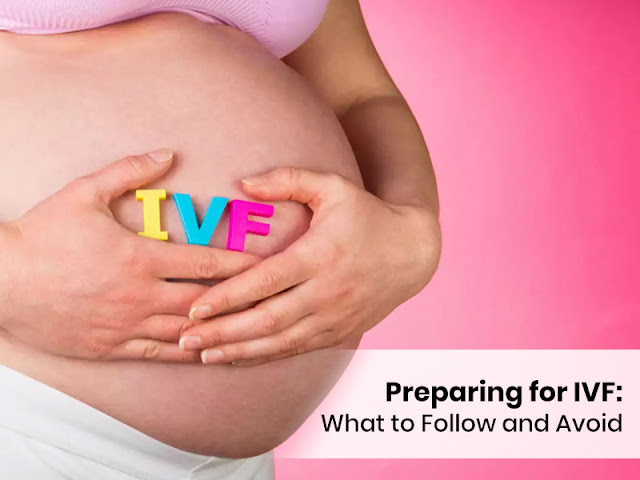In vitro fertilization
(IVF) is a process that involves several steps, including hormonal stimulation,
egg retrieval, fertilization and embryo transfer. While IVF can be an effective
treatment option for couples struggling with infertility, there are certain
things you can dofor a healthy pregnancy.
An infertility specialist in Kolkata provides guidance on what to follow
and avoid before the procedure. Let's know.
What
to do before your IVF procedure?
Here are the things
you can do to have a successful treatment
Maintain a healthy diet: A diet rich in essential nutrients and good fat help your body
prepare for pregnancy. You must eat vegetables, fruits, fish, eggs and meat.
You are also advised to avoid consumption of alcohol, sugar and processed food
items.
Exercise regularly:
Regular exercise can help reduce stress and improve fertility. However, always
consult with the experts of the best IVF clinic to determine what kind of
exercises is right for you.
Take prenatal vitamins: Taking prenatal
vitamins containing folic acid help support a successful pregnancy. Prenatal
vitamins increase sperm concentration in men and in womenthey are essential to
give birth to a healthy baby.
Manage stress: Stress have a
negative impact on fertility and IVF success rate. Consider relaxation
techniques like meditation, yoga or engage in hobbies to divert your mind and
uplift your mood.
Sleep for 8 hours:
A reputed expert of the best IVF treatment centre in Kolkata suggested
sleeping for more than 7 hours regularly to regulate the hormones and reduce
stress levels, which can positively affect your pregnancy journey.
What
you must avoid before your IVF procedure?
When preparing for
IVF treatment, there are certain things you should avoid in order to increaseyour
chances of success.
Smoking: An infertility
specialist In Kolkata said that smoking is proven to
affect the lining of the uterus, making it thin for embryo implantation. A thin
endometrium can make it difficult for the embryo to grow, thereby reducing the
chances of a successful IVF journey.
Excessive alcohol consumption: Heavy drinking can also have a negative impact on IVF success
rates. Studies have shown that it affects hormone levels leading to irregular
ovulation.
Caffeine: While moderate
caffeine consumption is generally safe, high levels of caffeine intake increase
the risk of miscarriage.
Intense exercise:
Intense exercise can interfere with IVF success rates. It's best to engage in
moderate exercises such as walking or yoga and avoid strenuous activities,
suggests an expert of an IVF clinic.
Conclusion
It's important to follow your infertility specialist’s instructions carefully when preparing for IVF and make sure to attend all appointments.
Watch the video here: https://fb.watch/lybrVFSWys/?mibextid=Nif5oz


.jpg)


0 Comments